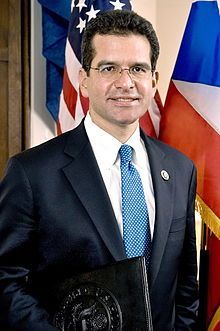
Pedro Pierluisi, Puerto Rico's representative to US Congress, will present a bill to Congress today proposing a referendum on whether voters would want the island to become the 51st state as well as an outline for how Congress would admit Puerto Rico as a state if the referendum passes. Pierluisi, part of the pro-statehood New Progressive Party, issued a statement saying "the measure establishes a clear and simple process for Puerto Rico to gain admission as a state of the Union". Puerto Rico held a non-binding local referendum in November in which 52.4 percent voted against maintaining the islands' status as a territory.
On Monday, Pierluisi told newspaper El Nuevo Dia the proposal was "the most important moment in the statehood movement since the foundation of the New Progressive Party".
RELATED: Will The Island Become The 51st State?
It was widely reported in November after Puerto Ricans took to the polls for a non-binding referendum that a majority had voted in favor of statehood for the first time in the territory's history. In fact, the results of the vote remained nebulous. The referendum asked two questions. The first asked voters to indicate whether they were satisfied with Puerto Rico's current relationship with the United States - to which 52.4 percent wrote that they were not. The second question inquired as to whether the island should become a US state, an independent country or a freely associated country (in which the US recognizes Puerto Rico's sovereignty, but agree upon a "free and voluntary political association" on terms to be decided later). 61 percent voted for statehood, 5 percent for independence, and 33 percent for sovereign free associated state. But current governor Alejandro García Padilla, who was then still campaigning for the post, had urged his supporters to leave ballots on the second question blank as a form of protest; if the 480,000 ballots which heeded his call are taken into account, statehood won only 44.9 percent of the votes.
Pierluisi defends the vote. "Some wish to downplay the results of the plebiscite by citing the voters who left the second question blank, but this argument does not withstand scrutiny," he has said. "In our democracy, outcomes are determined by ballots properly cast. Power rests with the citizen who votes, not the one who stays home or refuses to choose from among the options provided."
© 2025 Latin Times. All rights reserved. Do not reproduce without permission.




